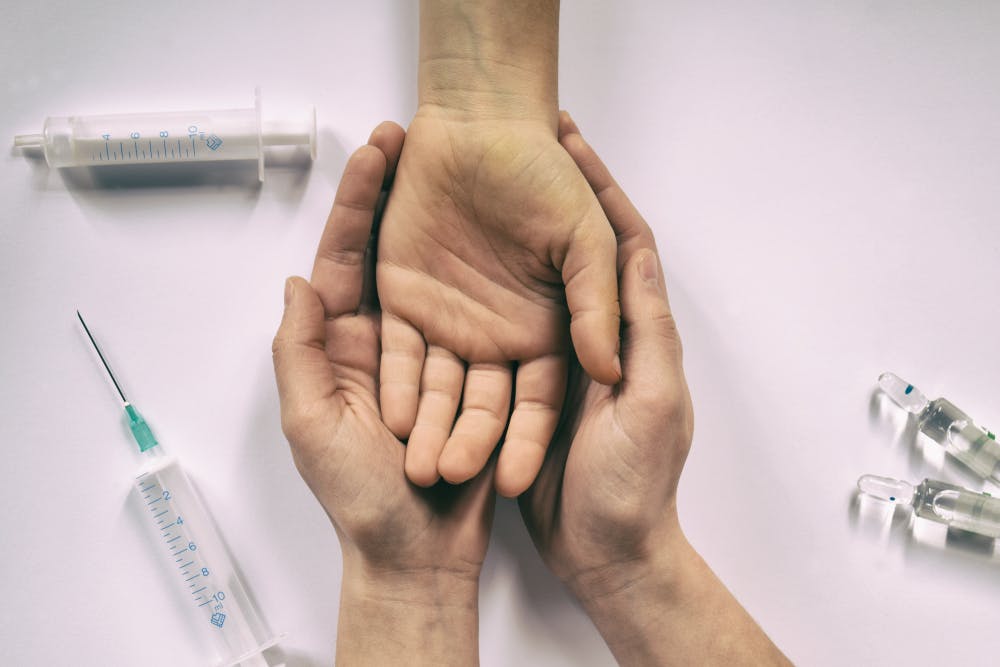How To Help An Addict: 7 Quick Tips
Helping an addict requires empathy, knowledge, and a commitment to understanding their journey. Through the power of education about substance abuse and ensuring you take care of yourself, you can become an indispensable pillar of strength and support.
Want to be a beacon of hope in your loved one’s journey toward recovery? Reach out to Zinnia Health at (855) 430-9439. Gain valuable insights about addiction and discover ways you can assist your friend or family member in their fight to regain control.

Tip #1: Educate Yourself on Addiction
Educating yourself about addiction is essential to support loved ones struggling with drug or alcohol abuse. This is important, as misinformation and believing in prevalent myths surrounding drug use and addiction can inadvertently cause harm.
For example, many people think of addiction as a moral failing or a problem of willpower or that it only affects marginalized communities. Another myth is that addicts must hit rock bottom to find the motivation to change.
However, addiction is a complex disease affecting the brain and behavior. It can affect anyone regardless of background; seeking help does not require hitting rock bottom.
Tip #2: Set Boundaries and Practice Self-Care
As advocated by the Substance Abuse and Mental Health Services Administration (SAMHSA), prioritizing your own mental and emotional health is fundamental to overall well-being.
Understand that you cannot control the addict’s choices or force them into recovery. The responsibility for their recovery ultimately lies with them. Learning to say no when necessary is crucial to avoid enabling their addictive behavior.
You should ensure you set clear boundaries by communicating your limits and expectations. Let them know what behaviors you are unwilling to tolerate and what consequences may follow if those boundaries are crossed.
Al-Anon and Nar-Anon are excellent resources that provide support, education, and guidance to those affected by a loved one’s addiction.
Zinnia Health is also available to offer support and advice.
Empower yourself with knowledge and explore treatment programs tailored to your loved one’s needs. Contact Zinnia Health at (855) 430-9439 to discover rehab centers, support groups, and recovery support services to guide your loved one toward a brighter future free from addiction.
Tip #3: Explore Treatment Options
Helping an addict often involves assisting them in finding suitable addiction treatment options. Start by researching referrals such as rehab centers, support groups, counseling services, or therapy options that align with their needs. Try to look for facilities or programs specializing in treating the specific substance or behavior the person is struggling with.
You should also consider if the organization treats other mental disorders. The National Institute of Mental Health reports that treating a substance use disorder (SUD) and a mental health disorder together is typically preferred over treating them separately.
Offer to accompany them to appointments, help with scheduling, or provide transportation if necessary.
Tip #4: Encourage Healthy Habits
Promote a healthy lifestyle by encouraging activities that support people recovering from drug addiction. MedlinePlus states that a balanced diet with the right nutrients can aid in the process of healing.
Regular exercise and engaging in hobbies or interests that bring joy and fulfillment can also provide a healthy distraction from cravings and help fill the void that addiction may have left behind.
Support your loved one to explore new interests or rediscover old passions.
Tip #5: Celebrate Milestones and Offer Continued Support
Recovery is a challenging and ongoing process, often with setbacks and hurdles along the way. Celebrate the milestones achieved by the person in recovery, whether big or small. Recognize and acknowledge their progress, expressing genuine pride and encouragement.
Encourage them to learn from setbacks and view them as opportunities for growth rather than failures. Remind them that recovery is a journey, and every step forward is a step closer to a healthier and happier life.
Tip #6: Embrace Recovery Technology
Technology is tearing down barriers, reaching even the most remote or underserved areas with life-changing treatment and support.
Smartphone apps can act as a personal support system, keeping those in recovery accountable and providing access to a wealth of resources. A study published in the National Library of Medicine states that mobile health apps can assist family caregivers in caring for their loved ones and themselves.
Other technologically-powered solutions include virtual support groups and online individual and family therapy platforms that bring connection and guidance right into your living room.
Tip #7: Act to Overcome Stigma and Promote Empathy
Overcoming stigma and promoting empathy are crucial in supporting addiction recovery.
The National Institute on Drug Abuse states that stigma often forms an obstacle, preventing individuals who need help from seeking the care they are entitled to.
By championing strategies that emphasize prevention, treatment, and support, we can effectively diminish the barriers of stigma for those wrestling with addiction.
In demonstrating empathy, we provide more than just a supportive presence. We show our loved ones that their feelings are seen and that their bravery in recovery is admired and respected.
Find Support Now
Helping an addict requires a compassionate and understanding approach. You can positively impact their recovery journey by exploring treatment facilities, setting boundaries, encouraging healthy habits, celebrating milestones, and offering continued support.
Contact Zinnia Health 24/7 at (855) 430-9439 for professional help and personalized guidance that will help you empower your loved one to rebuild their life and find joy in sobriety.

